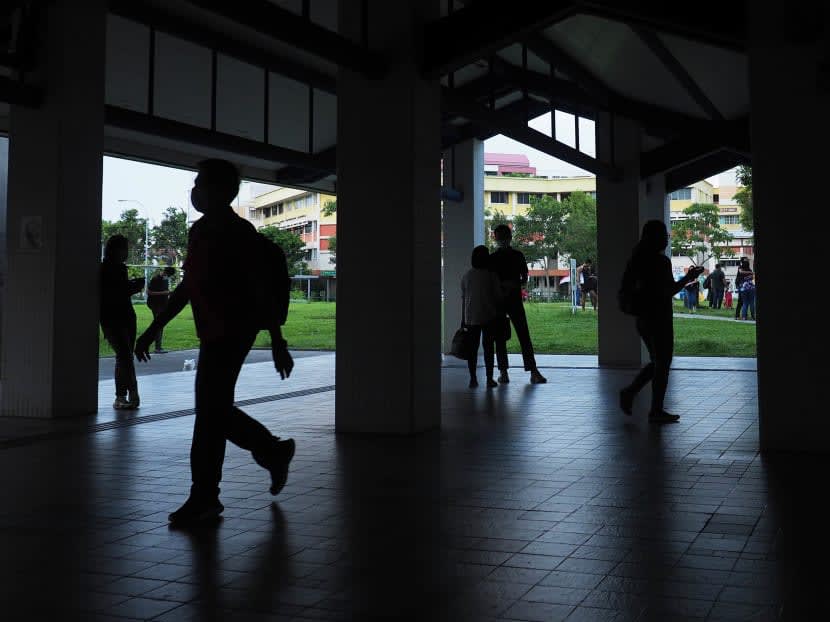Mental health task force hears calls for better access to services, more coordination among agencies
SINGAPORE — A public consultation aimed at improving the mental health and well-being of Singaporeans has heard concerns about poor access to mental health support, a lack of coordination across agencies and the need to remove the stigma felt by some parents over their children seeking care, among other issues.

- An inter-agency task force is gathering feedback on 12 draft recommendations to enhance Singaporeans' mental health and well-being
- More than 800 people have been engaged, through small group engagement sessions and online surveys hosted on Reach website
- Respondents have called for improved access to services and greater coordination between agencies
- Others have highlighted that young people have difficulty accessing mental health services due to parental stigma
SINGAPORE — A public consultation aimed at improving the mental health and well-being of Singaporeans has heard concerns about poor access to mental health support, a lack of coordination across agencies and the need to remove the stigma felt by some parents over their children seeking care, among other issues.
The concerns were flagged to an inter-agency task force, which on Monday (July 25) gave an update to the media on the ongoing consultation sessions after an engagement session with employees and front-line practitioners at Care Corner Singapore, a non-profit organisation for social services.
At the event, Dr Janil Puthucheary, Senior Minister of State for Health, said that the task force had engaged more than 800 members of the public since May 30 this year, when the consultation began, with about 400 people representing various stakeholders taking part in small group engagement sessions.
The public consultation will continue until Aug 7.
Set up in August last year, the task force oversees national efforts to promote mental health and well-being beyond the Covid-19 pandemic.
The task force highlighted three focus areas of feedback so far:
- Improving accessibility, coordination and quality of mental health services
- Strengthening services and support for the mental well-being of youth
- Improving workplace well-being measures and employment support
The task force has made some preliminary recommendations including a need to design first-stop touch points, such as a single phone line or a single digital resource where individuals may easily use and be referred to, based on their needs.
Other recommendations include the provision of training for front-line workers to better identify the mental health needs of clients and setting up standardised assessment and referral frameworks.
Dr Puthucheary told reporters at the event on Monday that the task force was looking at early intervention to help people in need via a multi-tiered approach, which focuses on general services and resilience within the community and prevent the deterioration of mental health.
Emergency departments, for example, face a disproportionate burden in dealing with health emergencies and crises.
“So if we can move upstream and provide resilience through earlier counselling services and interventions, then we don't have to force everybody to come for a crisis intervention. You have a much more controlled approach," he said.
Dr Puthucheary added that many of the interventions such as mental health counselling, certain types of screening and providing guidance do not need to be delivered only by a clinical professional.
Professionals such as social workers, general practitioners and school counsellors provide the opportunity for the client or the patient to be receiving those services in the community with shorter waiting time, “perhaps for someone that they already have a therapeutic relationship with”.
“So if we can move upstream and provide resilience through earlier counselling services and interventions, then we don't have to force everybody to come for a crisis intervention. You have a much more controlled approach.Dr Janil Puthucheary, Senior Minister of State for Health”
Front-line workers and staff members from various social service agencies that deliver mental health services told TODAY that they welcome the preliminary recommendations of the task force, while highlighting gaps that they say need to be filled.
Ms Bettina Yeap Hwee Ling, principal counsellor andhead of Insight, the mental health unit of Care Corner, highlighted the difficulty that some young people face in getting mental healthcare, owing to the fear of stigma held by some parents.
“Such attitudes create a wall between the available resources and those who need them,” she said, calling for more to be done to educate and change the attitudes of parents.
Ms Christabelle Shalini Ilankovan, a senior clinical executive at Silver Ribbon (Singapore), said that she welcomed the four-tiered approach adopted by the task force involving the general public and caregivers, counsellors and social workers, general healthcare practitioners and specialists.
She hoped that it would help categorise the needs of clients along with knowing the limitations of an organisation in being able to help them.
It could also minimise overlaps and confusion, she added.
“I think that we need to make sure the methods that are to be used to assess clients and categorise organisationsneed to be the same,since different organisations do many different things,” Ms Christabelle said.
Agreeing, Mr Joe Tan, a manager at Care Corner Seniors Services, said that he had called for training for front-line workers across the agencies, to adequately support the clients or the parents or caregivers.
This is to ensure that they do not get pushed around at different tiers and agencies, but to have a one-stop service where a person in need may “come in, be attended to and can get help”, he said.
The force task is expected to finalise its national mental health strategy later this year and publish its report next year.











